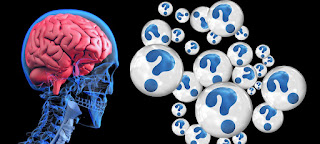Alzheimer's disease.
Alzheimer's disease
Alzheimer's disease is a progressive neurodegenerative disorder that primarily affects older adults. It is the most common cause of dementia, accounting for 60-70% of all cases.
 |
Alzheimer’s disease |
1) Key features:
Alzheimer's disease includes the accumulation of abnormal protein deposits in the brain, specifically beta-amyloid plaques and tau tangles. These deposits interfere with communication between nerve cells and cause the gradual death of brain cells, leading to a decline in cognitive function.
2) Symptoms:
Alzheimer's disease typically starts with mild memory loss and difficulty in performing familiar tasks. As the disease progresses, individuals may experience language problems, impaired reasoning, and changes in personality and behaviour. In the later stages, individuals may lose the ability to recognize loved ones and perform basic daily activities.
3) Treatment:
There is currently no cure for Alzheimer's disease, and treatment options are focused on managing symptoms and improving the quality of life for affected individuals. Medications may be prescribed to temporarily alleviate cognitive symptoms, and supportive care such as therapy and counselling can be beneficial for both individuals with Alzheimer's and their caregivers.
4) Research and potential treatments:
Research into the causes and potential treatments for Alzheimer's disease is ongoing, with a focus on developing drugs to target the underlying mechanisms of the disease. Lifestyle factors such as regular physical exercise, a healthy diet, and cognitive stimulation may also play a role in reducing the risk of developing Alzheimer's disease.
It's important to consult with healthcare professionals for accurate diagnosis, appropriate care, and support if you or someone you know is experiencing symptoms of Alzheimer's disease.
Comments
Post a Comment